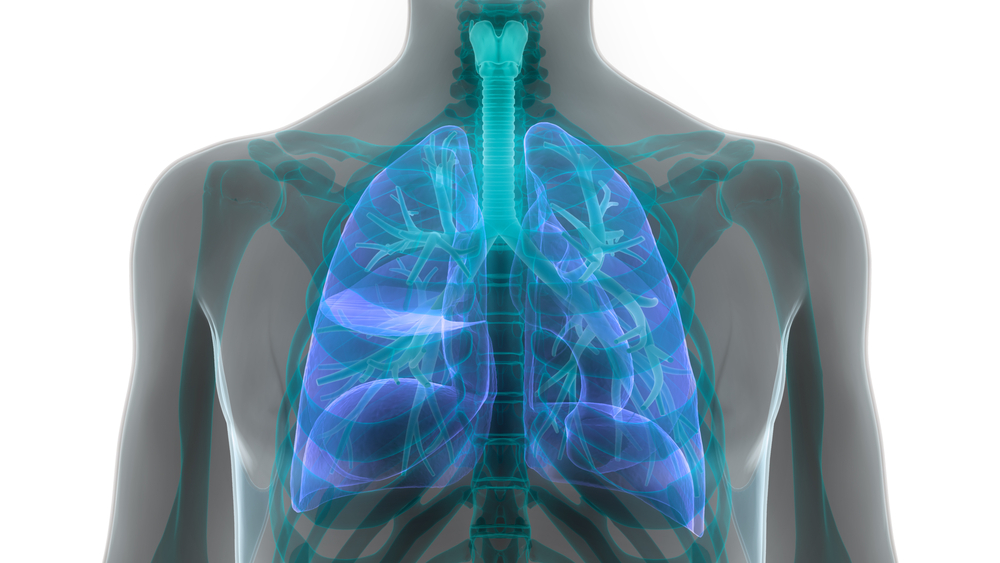PBI-4050 Seen to Be Safe and Effective IPF Therapy in Phase 2 Study
Written by |

PBI-4050 is a safe and effective therapy for patients with idiopathic pulmonary fibrosis (IPF), according to results of the now-completed Phase 2 clinical trial developed by ProMetic Life Sciences.
The open-label, single-arm, Phase 2 study (NCT02538536) enrolled 40 IPF patients at six different sites in Canada to investigate the safety, tolerability, and efficacy of PBI-4050 (800 mg daily, oral administration) on lung function and IPF disease progression. All patients have now completed the 12-week of treatment.
The trial study also aimed to determine whether there was a clinical benefit with PBI-4050 treatment, whether administered alone or in addition to Ofev (nintedanib) or Esbriet (pirfenidone), two drugs approved for the treatment of IPF.
PBI-4050 is an oral drug designed to treat fibrosis, a process characterized by the replacement of normal tissue by fibrotic scar tissue.
In the trial, nine IPF patients were given PBI-4050 alone, 16 received PBI-4050 plus Ofev, and 15 PBI-4050 plus Esbriet. The baseline characteristics of enrolled patients were similar to those enrolled in previous Phase 3 studies of the other drugs.
The ASCEND (NCT01366209) and INPULSIS (INPULSIS-1, NCT01335464, and INPULSIS-2, NCT01335477) trials examined the efficacy of Esbriet and Ofev, respectively, in treating IPF. In these trials, after 13 weeks, patients receiving treatment showed a lesser decline in forced vital capacity (FVC; a measure of lung function) than patients treated with placebo.
IPF patients usually have a progressive decline in respiratory function. In the PBI-4050 study, however, patients treated for 12 weeks with the investigational drug, alone or in combination with Ofev/Esbriet, showed a slight improvement in FVC.
“PBI-4050, either used alone or in [combination with one of these two approved IPF drugs], demonstrated very promising early indications of efficacy, considering that current drugs approved for IPF only slow (but do not reverse) the decline in lung respiratory function,” John Moran, chief medical officer of ProMetic, said in a press release.
These results confirm the preliminary data reported in November 2016, following the first 30 subjects’ completion of the 12-week treatment.
Full results of this Phase 2 study will be presented at an upcoming scientific conference.
“It is also important to note that during our clinical trial … we see any subjects experiencing a decrease in FVC of 10% or more, contrary to the outcomes in the other IPF trials,” Moran said.
The company also reported that no patients in the study discontinued PBI-4050 treatment because of adverse events, and most reported side effects were minor, like diarrhea. “This was clearly much less significant in the subjects treated with PBI-4050 alone than in the groups receiving either of the currently approved drugs for the treatment of IPF, which are well-known for their significant side effect profiles,” Moran added.
Pierre Laurin, ProMetic’s president and chief executive officer, added: “These positive results support the rationale and clinical study design for the placebo controlled, pivotal Phase 2/3 IPF clinical trial we intend to initiate in Q2 2017. We expect to see PBI-4050, alone or in combination with one of the commercially approved IPF drugs, continue to outperform the current drugs in terms of efficacy, safety and tolerability”.
PBI-4050 was granted orphan drug designation by the U.S. Food and Drug Administration (FDA) as a potential IPF treatment in February 2015, and the European Commission granted the same designation to the drug for this clinical indication in October 2015.






